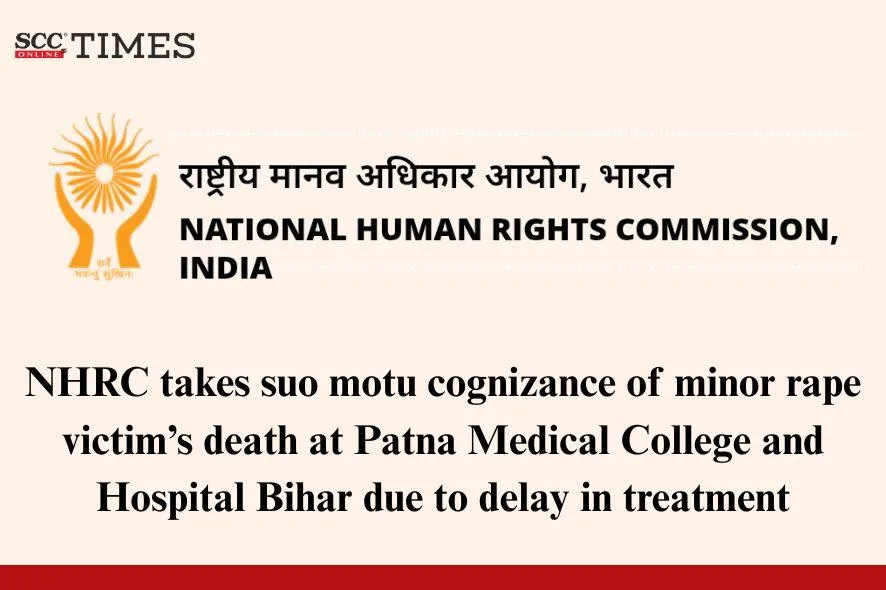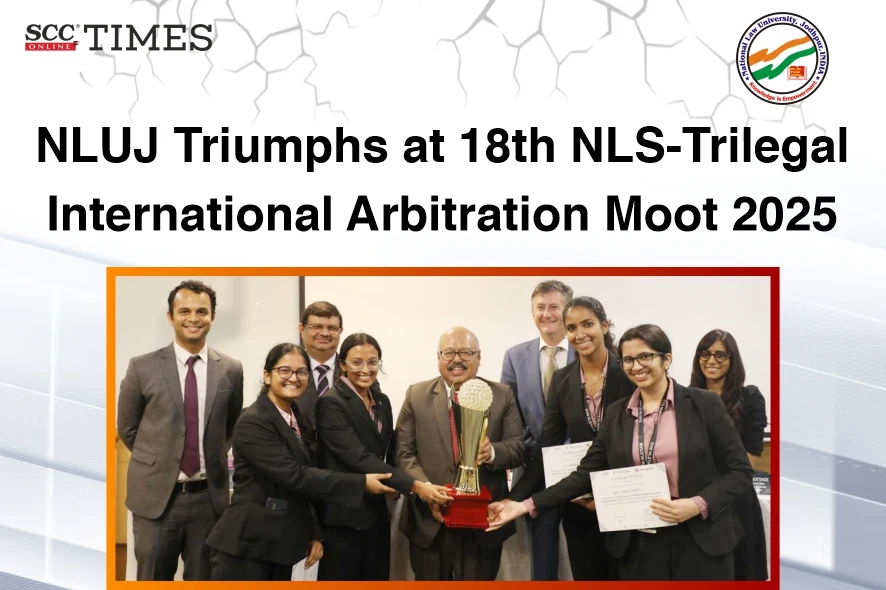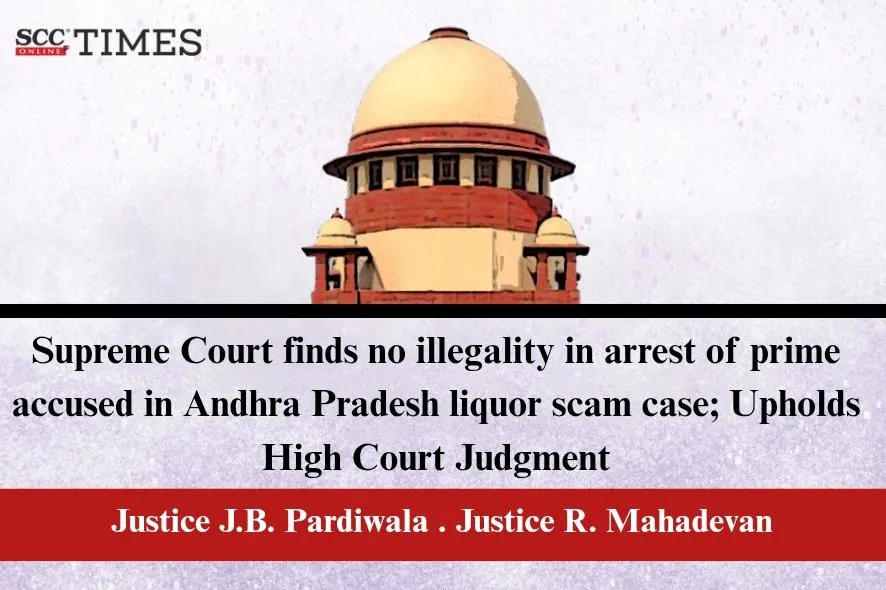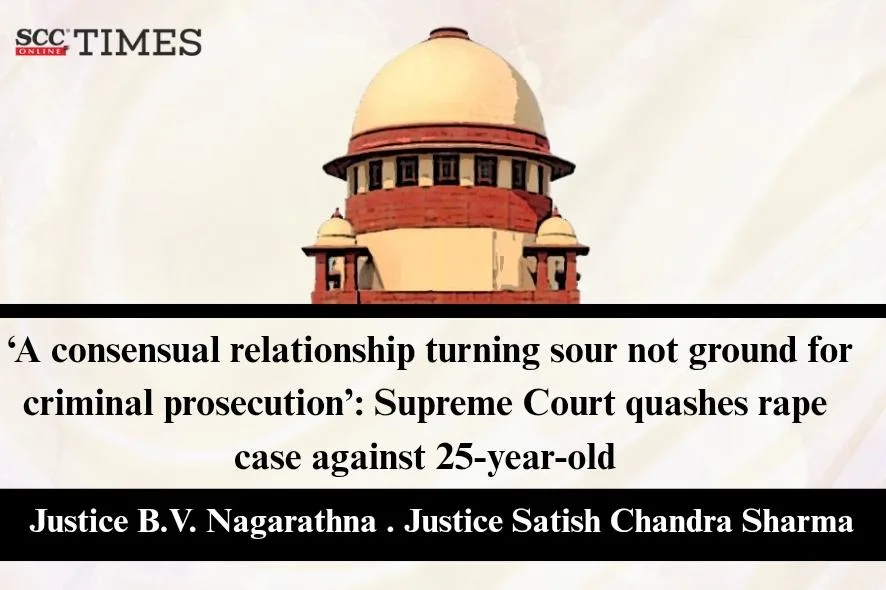Bombay High Court: Prithviraj K. Chavan, J., dismissed the present appeal filed challenging the Judgment passed by Special Judge under Protection of Children from the Sexual Offences Act, 2012 wherein he was convicted under Section 6 of POCSO Act.
Appellant has been convicted of Section 342 of Penal Code, 1860. He came to be acquitted of offences punishable under Section 10 of POCSO Act and under Section 376, 366(A) of IPC.
Facts of the Case
Victim a 5 ½ years old girl went out to play with a small boy in her neighbourhood when the Appellant took the girl to his house on the pretext that he would show her songs on his mobile and later PW 6 (eye-witness) asked PW 3 (relative of victim’s mother) to see what appellant was doing with the victim, when PW 3 peeped in the house she saw that the victim was made to lie down on the ground in a prone position and appellant was lying on her person. Victim told PW3-M that when she went in search of Babu for playing, the appellant took her in the house, bolted the door from inside and then pulled her slacks down and made her lie in prone position on the ground. He put his penis in her anus and was moving it.
It has been stated that as per Rule 33(7) of POCSO Act, the identity of the victim as well as all the family members, relatives, neighbourhood or any other information by which identity of the victim is revealed is required to be concealed.
Investigating Officer laid a charge-sheet under Sections 376, 342, 366A, 377 of PC read with Section 6 and 10 of the POCSO Act. Special Judge after considering the evidence on record and after hearing the prosecution and defence convicted and sentenced the appellant.
By referring to the report of FSL, appellant’s counsel Aniket Vagal, argued that no male DNA was detected in vulval swab or anal swab of the victim.
APP, S.V. Gavand while opposing the contention of the appellant’s counsel submitted that there is no need to refer the medical evidence as the appellant was just stopped from inserting his penis in the anus of the victim. Appellant was about to commit an offence as provided under Section 3 of the POCSO Act. Appellant betrayed the trust of the victim who used to refer him as ‘Dada’. She was in a fiduciary capacity with that of the appellant. Further, it is submitted that this is not a case in which leniency is required to be shown to the appellant.
Decision
High Court on noting the above-discussion stated that, the victim PW2-G called the appellant dada meaning she had full faith and respect towards the appellant who betrayed her trust by molesting her.
Appellant was about to commit aggravated penetrative sexual assault upon PW 2 but due to intervention of PW 3, he could not succeed in his nefarious design and thus the act was in fact about to be accomplished by him since he had already started movements of his penis over the posterior part of the victim.
Appellant did an attempt towards an act of committing aggravated penetrative sexual assault and, therefore, the trial court has rightly appreciated all the circumstances and facts on record by passing an appropriate sentence of imprisonment.
Bench cited the Supreme Court Case – Madan Gopal v. Naval Dubey, (1992) 3 SCC 204, wherein it was held that,
“offenders who are menace to the civilized society should be mercilessly and inexorably punished in the severest terms.”
Relying on the above-stated case the Bench stated that the Court in the above case is loud and clear as to how such offences are required to be dealt with who are menaces to the civilized society and therefore, they should be mercilessly and inexorably punished.
In the present case, there is no question of reformation of the appellant as he was quite a grown-up male who knew the consequences of his act.
Thus in view of the above, the appeal needs to be dismissed and no interference is warranted. [Baburao v. State of Maharashtra, 2019 SCC OnLine Bom 5720, decided on 20-12-2019]












